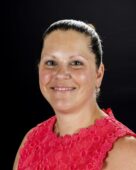
Child therapists in Rushville, Indiana IN

Maria Maddalo
Psychologist, Psy.D., BCBA
Child and Adolescent Issues often present differently than adults. With this in mind, it is important to work at a child or adolescent's developmental level. I work with these special clients to meet them where they are, and to address their specific areas of need, including friendships, relationships, bullying, and academics. Suicidal ideation is also a rising concern among this population.
As a Licensed Psychologist and School Psychologist in PA, I am able to provide both therapy and evaluations for your child or adolescent.
Cami K McBride
Psychologist, PhD
Extensive experience and training with children and adolescent development and psychopathology.
Therapy Solutions, LLC
Psychologist
We offer therapy and psychological assessment to children and adolescents ages 6-18. We are also pleased to be able to provide fully virtual, comprehensive ADHD evaluation and intelligence testing for this age group.
Sala Psychology
Psychologist
We have clinicians who specialize in child/adolescent issues, and have received training from the Yale Child Study Center.
Strides in Psychotherapy
Psychologist, PSY.D.
Usually, when people think about psychotherapy, they imagine sitting on a couch in an office talking to a therapist about their problems. This style of therapy works just fine for many adults and adolescents. However, most younger children express themselves better through play than through words—for them, play is a primary method of communication. Even very bright and highly verbal children may find it difficult to talk about situations when strong feelings are involved. This is why they might shrug their shoulders, refuse to answer or say “I don’t know” when asked what is wrong. They might also “act out” or try to communicate to you through their behavior rather than through words, and sometimes these behaviors can get them into trouble at home or at school or be misunderstood by those around them. In addition, children often find it hard to sit still and talk for 45 minutes in a row, and they enjoy coming to therapy much more when play is a part of the equation.





